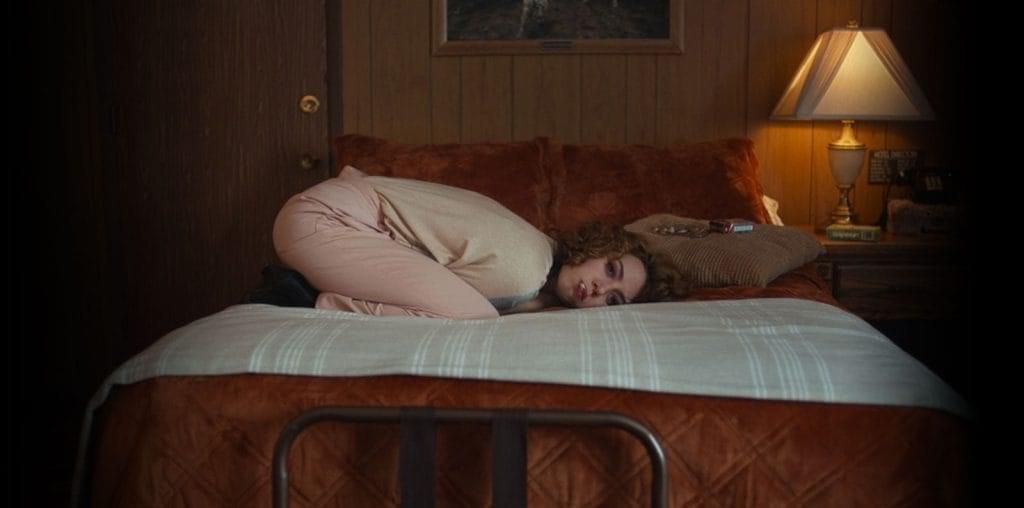
I have to give credit to a talky film that knows when to keep its mouth shut. If for nothing else I would have given this a minimum of three stars for the way it alternates between meaningful dialogue and intelligent silence. However, the story of how an 18 year old girl called Daphne (Jessica Bohl) is confronted by her middle aged neighbor (Richard Brundage) who’s found out about her double life as a schoolgirl/escort called “Britney”, is compelling. The neighbor, his name is Buddy, rents her out for an hour and takes her to a cheap hotel room where he and his wife used to go fool around in private during their college days. There the two try to avoid physical contact with talk, the irony of course is that they’re being much more intimate this way than they ever could doing the old in and out.
Despite the fact that the characters are self-absorbed beyond the point of no return, the people onscreen have such a deep essential humanity that they’re not tedious. We empathize with their feelings even if we can’t quite understand or condone them. What helps is that they don’t scream and carry on and bawl every two seconds like drama queens. They show deep emotion without becoming emotional, very good acting here. It also helps immeasurably that there’s never a single phony moment in the entire 84 minute running time. Some documentaries seem more staged than this. The way Daphne and Buddy talk to each other feels like the chaos that is profound conversation; complete with excited interruptions, or sentences stopping in midstream because the other person knows what you were about to say, or references to something mentioned a long time ago with no explanation.
Also, Buddy’s curiosity in Daphne is why she prostitutes herself, not the details of the sex she performs. Like, for example, a lesser movie would have had Buddy ask for an explanation when Daphne talks about “Tossing the salad” assuming that a middle aged man wouldn’t know what that is; but Bechard knows that just because Buddy isn’t the hippest dude on the planet doesn’t mean he’s naïve. Some screenwriters seem to be stuck in 1968 where anyone over 40 had no idea what anyone under 30 was talking about. Thankfully, Bechard isn’t one of those people.
Daphne’s reason for prostituting herself is shallow beyond belief, but director Gorden Bechard wrote a screenplay that’s too smart to let the characters understand themselves completely. What she tells Buddy is only the reason that she thinks she’s an escort. Bechard gives us clues, without ever being too transparent, that there are a myriad of other things adding up. The neighbor, Nicholas “Buddy” Drake is also fully fleshed out. There’s a scene where he’s heartbroken for his dog that died which is made all the more powerful because we know he’s not sobbing just for the dog.
If there is one flaw, it’s that director Gorman Bechard added acoustic ballads to accompany the action. They’re not intrusive, but they’re the type of songs with lyrics that “mimic” the action on the screen, and I kept getting weird WB flashbacks. That said, instrumentally the songs worked well and didn’t dilute what was onscreen. Some people may not even notice them, so it’s a minor thing.
The ending is a sorta/kinda deal. It sort of works, but I don’t feel it’s necessary. However, at the same time I also kind of see why Bechard put it there. A quieter ending would have fit in better with the tone of the story, but this one will get people talking about the film and it doesn’t take away from anything that’s happened before. In fact, I mention it last because it may very well be something that grows on me over time.
